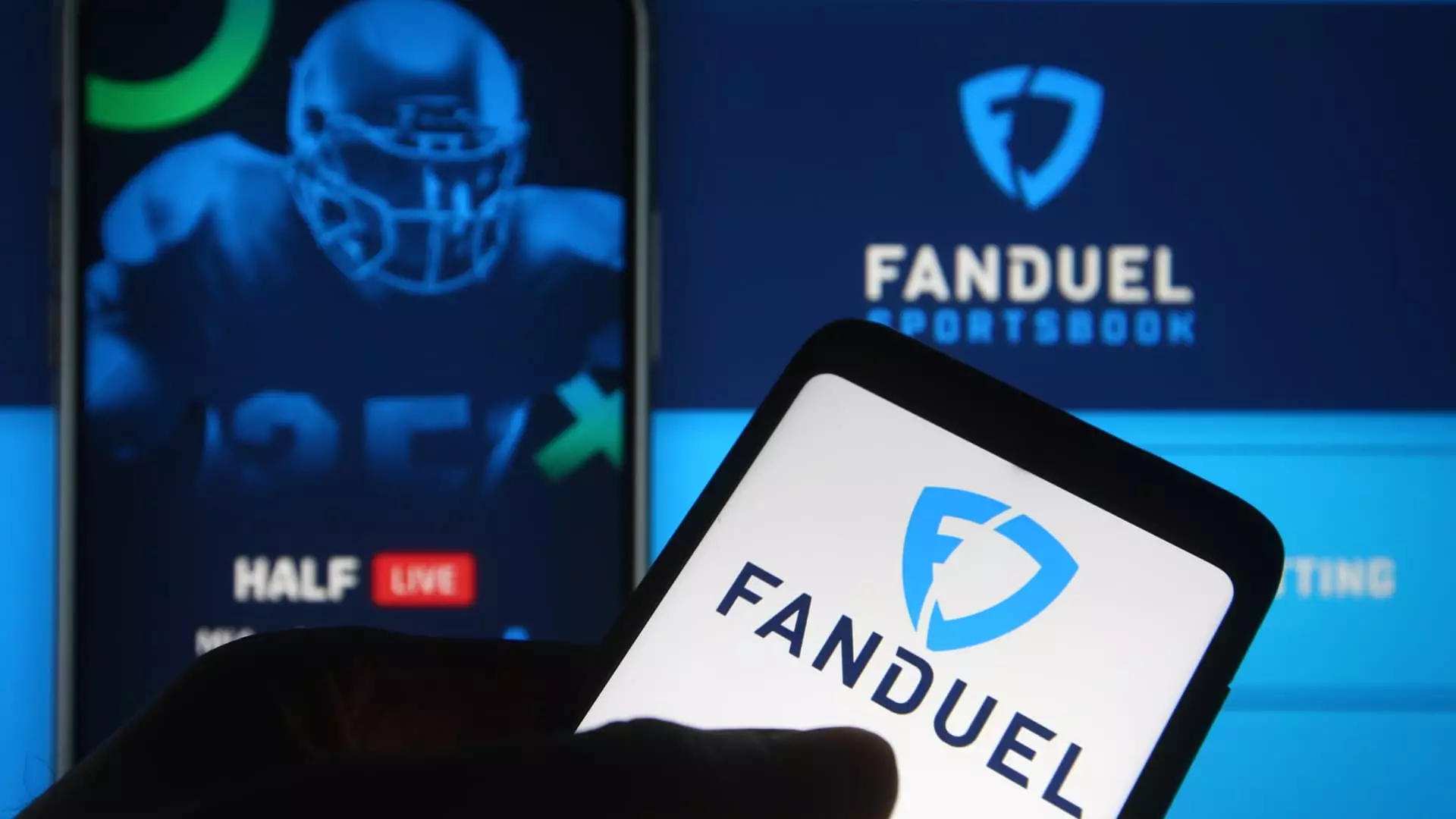The entertainment landscape is undergoing significant shifts, particularly in the realm of sports broadcasting. Recently, Diamond Sports has announced a pivotal transformation within its regional sports networks by entering into a naming rights agreement with FanDuel, a subsidiary of Flutter Entertainment. As the NHL season kicks off and the NBA season readies to begin, this move marks a significant evolution in how sports entities operate and engage with audiences.
The naming rights deal between Diamond Sports and FanDuel is strategically positioned against a backdrop of considerable changes within the sports broadcasting industry. As Diamond Sports navigates its way through bankruptcy, the partnership with FanDuel serves as a beacon of potential success and recovery. This collaboration is not merely a branding exercise; it signifies a calculated effort to align with a prominent player in the burgeoning online gaming market. FanDuel, currently the leader in sports betting by market share, stands to gain considerable visibility through its association with sports channels that broadcast NHL and NBA games. The partnership allows both parties to leverage their strengths amidst an environment characterized by flux.
The term “long-term naming rights partner” suggests that FanDuel intends to secure its place as a major contributor to the restructured Diamond Sports, contingent, of course, on court approval of the agreement. Notably, the deal includes terms that allow FanDuel to acquire up to 5% equity in the reorganized Diamond Sports, along with performance warrants for an additional 5%. This move reflects a broader trend where sports networks are increasingly seeking synergistic relationships with gaming companies, fostering an environment of cross-promotion and enhanced viewer engagement.
The upcoming rebranding marks the third name change for these regional sports networks. Initially under Fox Sports, the channels pivoted to Bally Sports following Sinclair’s acquisition in 2019. However, this partnership ended amid legal and financial turbulence, leading to Diamond’s precarious situation. The historical context illustrates how ownership dynamics impact operational decisions and brand viability. Diamond Sports has fought to shed its previous affiliations to emerge as a stand-alone entity, navigating the treacherous waters of sports broadcasting while grappling with significant debt.
The internal restructuring of Diamond Sports, heavily influenced by its relationship with Sinclair, brought additional complications. While Diamond asserts that Sinclair’s ownership has intensified its challenges, the latter has not acknowledged any wrongdoing, illustrating the complexities of corporate accountability in the sports media realm. This tumultuous backdrop highlights the stakes involved in naming rights agreements, as they are intertwined with broader corporate narratives.
As Diamond positions itself for a reemergence, the impact extends far beyond branding. The restructuring has prompted several teams from Major League Baseball (MLB), National Basketball Association (NBA), and National Hockey League (NHL) to explore alternative viewing options, indicating that the fallout from corporate decisions can reshape league dynamics. For instance, Diamond recently announced plans to drop numerous MLB teams from its coverage in favor of future financial stability, a move that is reportedly not preferred by the company itself.
This exodus of teams highlights a crucial pivot within the industry as teams seek greater autonomy and diversified viewing channels. The race for engaging local broadcasts has seen several teams partner with local stations or initiate streaming agreements that allow for more direct engagement with fans. This shift reflects a growing discontent with traditional broadcasting paradigms, signaling an era where direct-to-consumer models and localized streaming services are becoming increasingly essential.
Looking Ahead: Challenges and Opportunities
As Diamond Sports steers through its bankruptcy proceedings with an eye towards profitability, the implications of its new partnership with FanDuel could set a defining precedent for the regional sports networks. Prospective court approval will determine whether this alliance is feasible, and if approved, how it influences the market landscape going forward. Industry observers will be keenly watching how this partnership unfolds, particularly in terms of viewer experience and advertising potential.
The evolving dynamics of sports broadcasting underscore an essential lesson for stakeholders involved: adaptability is key. Moving forward, the successful navigation of this challenging terrain may depend on how well networks integrate innovative partnerships, secure viewer loyalty, and redefine their operational strategies. For Diamond Sports, the road ahead is characteristically fraught with both challenges and opportunities.


Leave a Reply